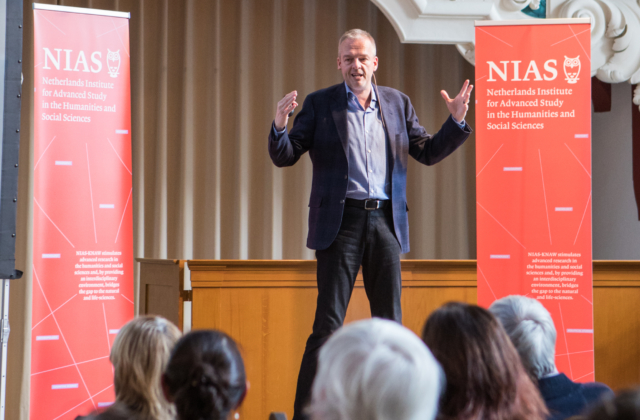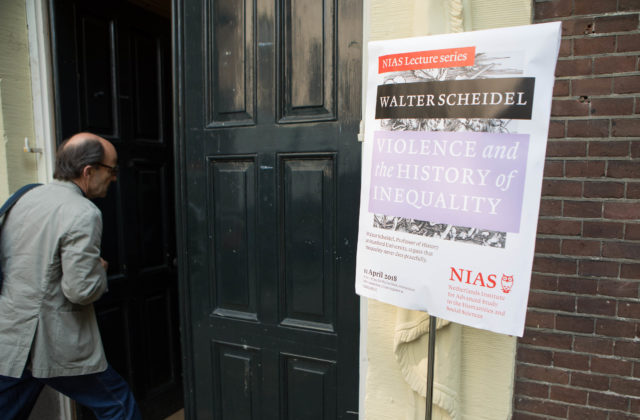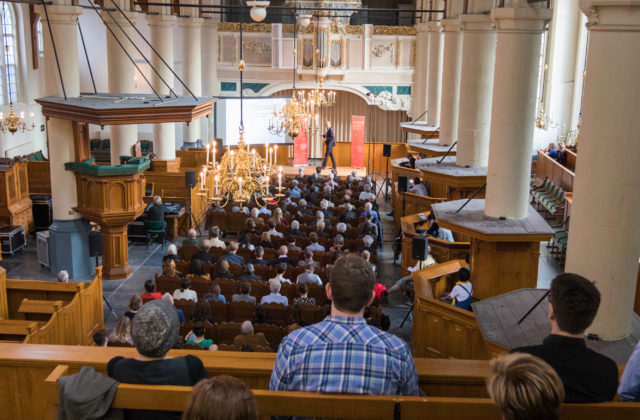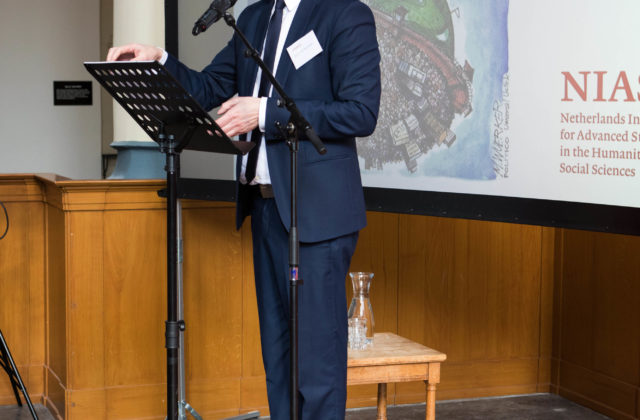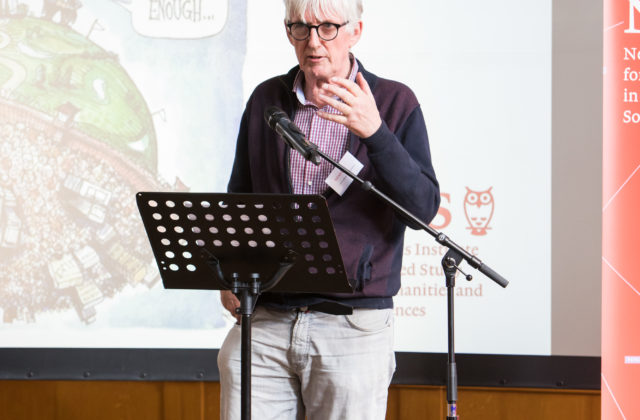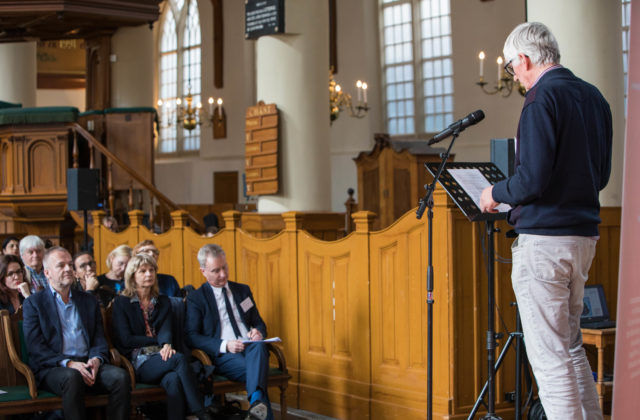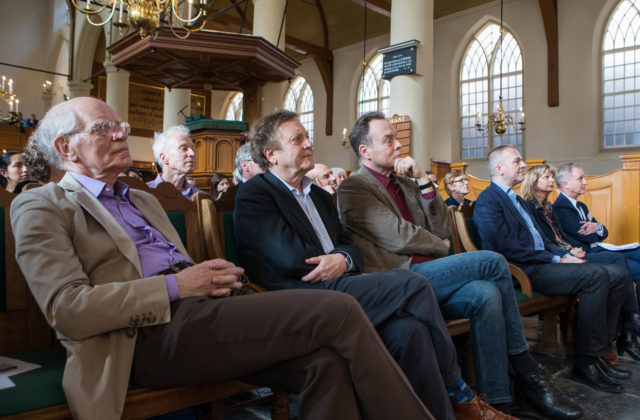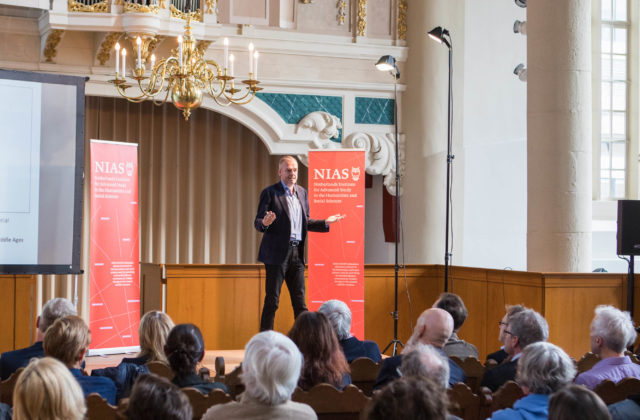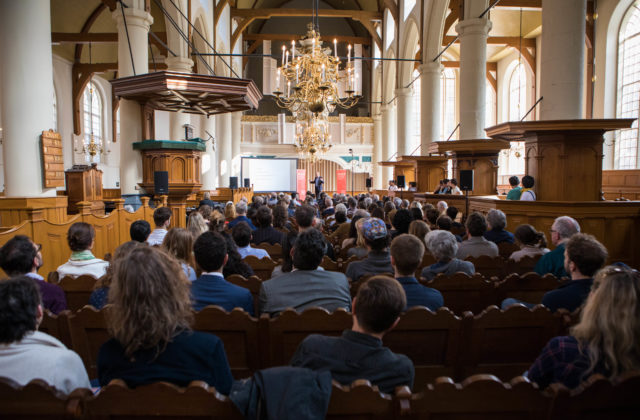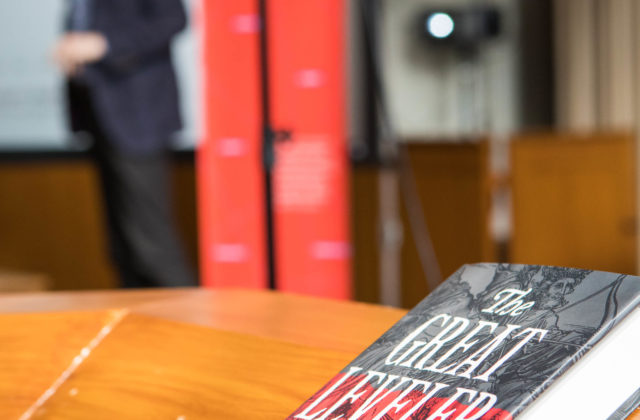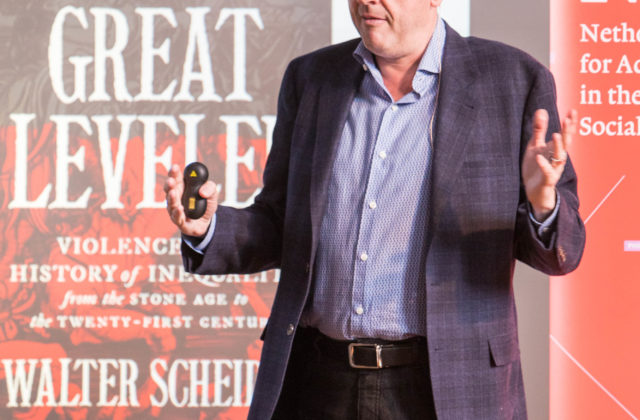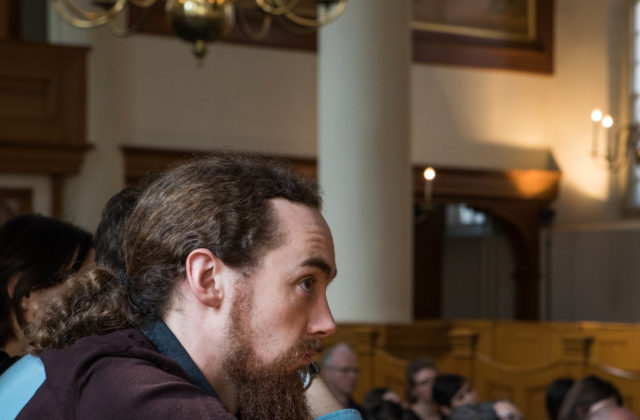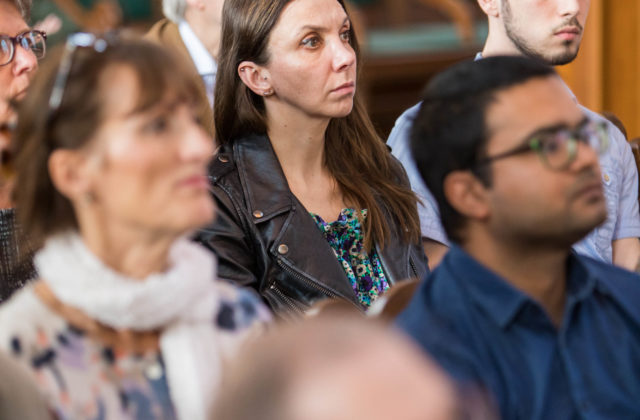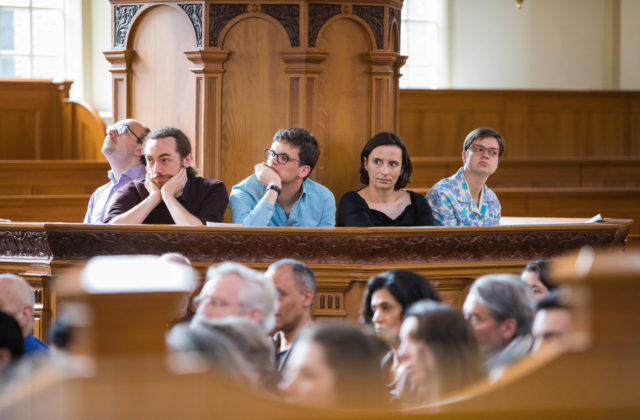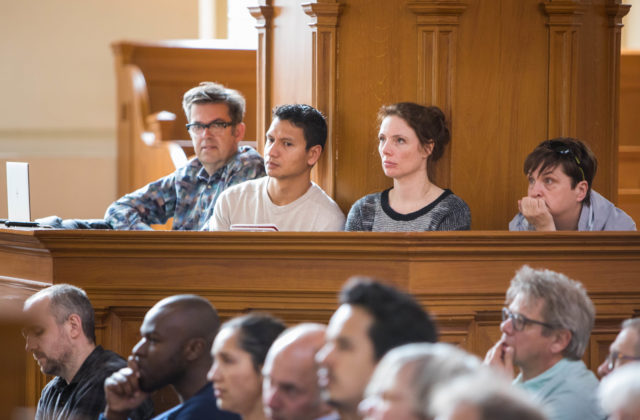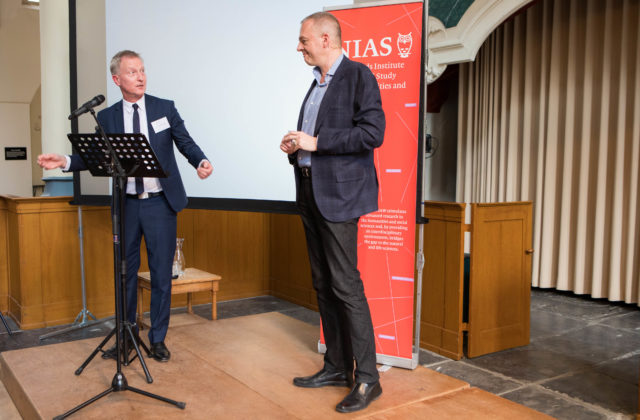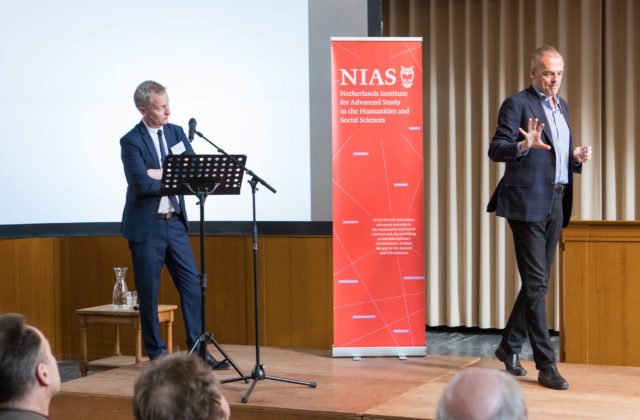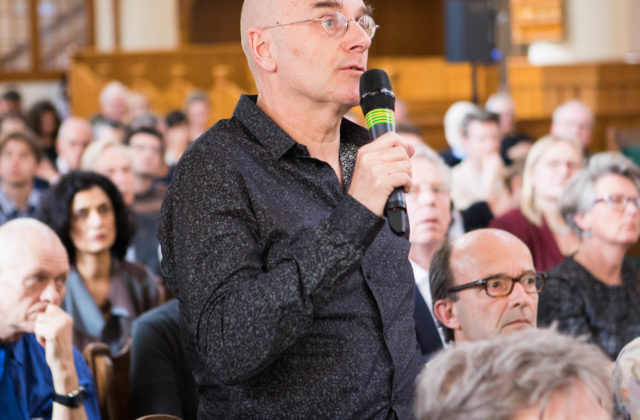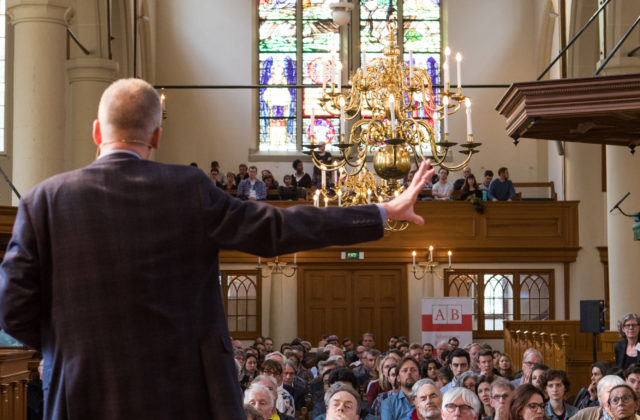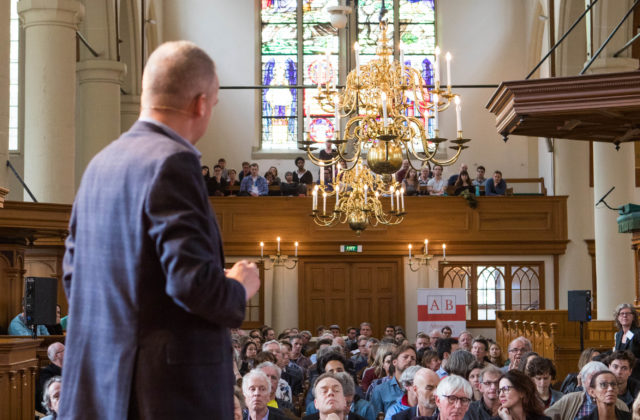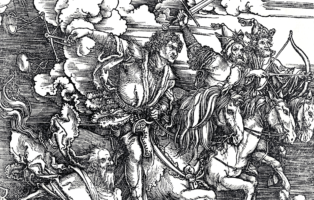Jan Willem Duyvendak, newly appointed director of NIAS, welcomed guests and described how this first NIAS Annual Lecture constitutes part of a wider plan to establish NIAS as an Institute for public knowledge. He thanked his predecessor, Theo Mulder, for taking the lead in setting up this first lecture and then gave the floor to Jan Luiten van Zanden: Faculty Professor of Global Economic History at the University of Utrecht, specialist in the field of global inequalities, member of the Academia Europeae and a recipient of the Spinoza Prize.
Jan Luiten van Zanden introduced Walter Scheidel, Professor of History at Stanford University, as an Economic historian with a strong quantitative orientation giving the audience a taster of the range of topics Scheidel has worked on during his career from stone-age households to the global societies of today. Van Zanden referred to Scheidel’s acclaimed book The Great Leveler – Violence and the History of Inequality from the Stone-age to the Twenty-first century and admitted that he fervently hoped that the pessimistic conclusions put forward would turn out to be wrong.
Increasing inequality
In his lecture, Walter Scheidel began by remarking that although some types of inequality are improving, wealth inequalities persist. Currently 1% of the population own 50% of world’s wealth – and this is rising. He claimed that historical evidence shows that violence has been the single most important means of levelling wealth and income inequality and went on to discuss the relative impact of four mechanisms: state collapse, pandemics, transformative revolution and mass mobilization war, which he refers to as the “Four Horsemen”.
As pre-historic humans became less itinerant and began to settle they created material goods of value, such as tools, which could be ‘inherited’ by others. The human drive to have more existed but amassing great wealth was not yet feasible. Over the years, as societies and states developed, wealth increased and those who benefitted did what they could to protect their goods. The longer an empire existed, the richer the ruling class became. If a state collapsed, everyone suffered but the rich had more assets to lose than the poor and the more dramatic the collapse, the more substantial the impact on levelling. Examples from the past included Mycenaean Greece, Western Roman Empire, Classic Maya, Tang China.
The devastating pandemics of the past such as the Justinianic Plague (6th/8th C); the Black Death (14th/15th century); New World pandemics (16th/17th century) also had a levelling effect. These diseases did not discriminate between rich or poor and huge numbers of the population from all classes were wiped out. However, the impact on survivors was more positive. Evidence from England, Mexico and Egypt demonstrates that workers’ wages peaked after pandemics when labour became scarce whereas, in contrast, the land and assets of the rich dropped in value thus levelling wealth.
However, today state collapse and pandemics on this scale are unlikely so this mechanism for levelling will not be effective. This brings Scheidel to the other two of his “Four Horsemen”: Mass mobilization war and Transformative revolution.
The impact of war with mass mobilization varies per country. For example, in Europe, WWI and WWII resulted in the obliteration of property and infrastructure combined with mass casualties. The work force was decimated at a time when skilled labour was needed to rebuild the country. Capital lost value while skilled and educated workers gained the advantage. The huge wealth inequalities of before the evaporated. Tax rates shot up to pay for the rebuilding and, as a knock on effect, democratization, urbanization, social solidarity increased and the welfare state grew. Civil war or revolutions, such as in Russia and China, also have a similar effect although the reduction in inequality is less.
Scheidel admits this is a pessimistic narrative where only death, destruction and violence seem to work. So are there any non-violent ways to reduce inequalities? He gives some suggestions and discusses the more modest effect of land reform, financial crises, democracy, education, unionization and – the economists’ favourite – economic development. However, he has to conclude that none of the above are able to reduce inequality as effectively as violence.
Are these historical observations useful for the future? This seems particularly relevant as we regularly read that wealth inequalities are rising. However, our societies have changed and, inevitably, so have the mechanisms, which means that outcomes will be unpredictable. For example, the mechanism of warfare is currently more likely to be digital and new epidemics that break out may be untreatable.
Economists offer a menu of solutions and plausible policy measures include: targeted fiscal intervention, investment in education, tracking offshore wealth, basic income, finance reform. However, these must be contextualized in our altered global environment to absorb the disequalizing trends associated with globalization (helps some more than others); automation (robotics replace labour); secular aging; migration (high income countries attract low income/education workers); and somatic enhancement (only benefits those who can afford it).
Scheidel concludes by saying that although history cannot predict the future it can give us a sense of what is feasible and encourages us not to give up in the fight against inequalities.
The lecture was then followed by a short but engaged Q&A session with questions from members of the audience after which there was an opportunity for more informal discussions over drinks and snacks. In keeping with NIAS tradition, the NIAS fellows did not leave it at this and were overheard discussing aspects of the lecture over the next few days. All in all the lecture was a great success and the 2nd NIAS Annual Lecture is already being planned for the spring of 2019.
Report by Petry Kievit-Tyson
More
- You can listen to the full lecture here (txt radio)
- “De mens doet te weinig tegen economische ongelijkheid” Interview by Dirk Vlasblom, NRC (Dutch)
- “Rampen verkleinen kloof tussen arm en rijk” Interview by Hilbrand Rozema, Nederlands Dagblad (Dutch)
